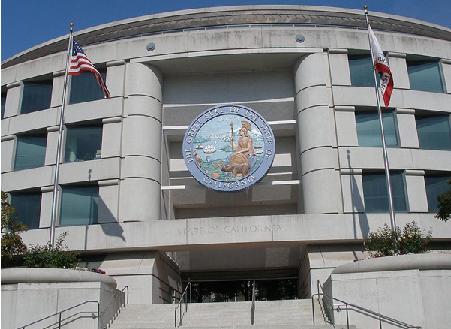To stem the massive hemorrhaging in the budget, the state of California has authorized the sale of 24 state-owned office buildings across the state to private investors. The state would then rent back the office space.
It’s a classic case of short-term thinking: In the end, the state will end up paying more money in rent than it will gain from the sales. The nonpartisan Legislative Analyst’s Office reported in April that over the next 30 years, the lease payments will likely cost $5 billion more than if the property had stayed in the state’s possession.
But it would provide an immediate injection of $1.2 billion into the state’s general fund.
But there’s an interesting twist that hasn’t been reported on: The state buildings are currently exempt from local property taxes. Once they’re in private hands, county assessors can put them on the tax rolls.
And the way the deal is structured, the state — that is, the taxpayers — will be subsidizing the private owners to cover the local property tax bills. In effect, the deal means that the state will be shifting more money from its general fund to local government — a good thing for counties, but not a terribly good deal for Sacramento.
According to Eric Lamoureux, spokesperson for the Department of General Services, if the local cities decide to tax the new owners, the rent state agencies pay would increase to make up the difference. The private owners would pay nothing.
“The [cost of the tax] is built into lease terms. Ultimately, the state would be paying that.” Lamoureux said.
And while San Francisco City Attorney’s office is still unsure of the exact terms of the sale-lease back agreement, they plan on looking out for the city’s best interests.
“The city attorney is going to be extremely diligent with the recorder-assessor to collect all the taxes that are owed,” Matt Dorsey, press spokesperson for City Attorney Dennis Herrera, told us. And by collecting property tax, the local city governments would get a nice boost in revenue.
The sale to California First LLC, a partnership between Hines Interests and Antarctica Capital, has already been met with opposition including a lawsuit and an injunction trying to prevent the deal.

